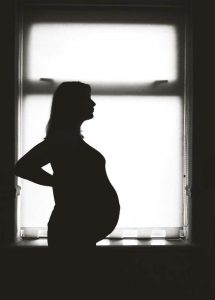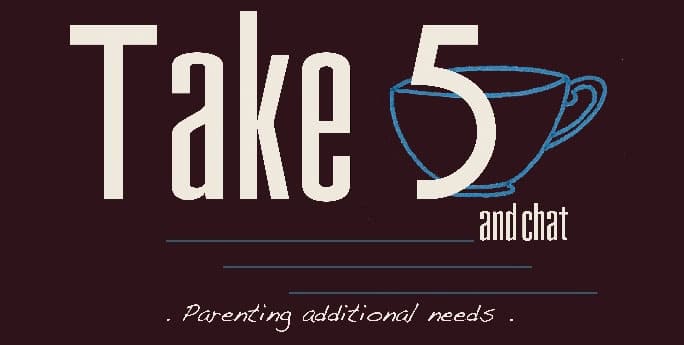Nearly five years ago, Rae wrote the birth story for her third child, Gideon. He was very poorly when he was born and spent time in NICU and SCBU. At that time, she didn’t really have any answers and didn’t know what the future might hold. Since then Gideon has been diagnosed with Prader-Willi Syndrome and life has taken the family on a very unexpected journey. Rae has written a mini series of blog posts for Take 5 and chat, and she raises some important issues and offers some helpful suggestions. Thanks Rae.

Gideon is my third child and third pregnancy. And it was pretty straightforward. All his tests came back normal or low risk. He moved less than his brothers but I had an anterior placenta, so blamed that. Of course, once he was born, it became obvious he was very poorly and we got his diagnosis of Prader Willi Syndrome at ten days. And so it began – life as a special needs parent. Constant therapies and hospital appointments and adaptations. Not enough sleep. Too much poo – far too much poo….
And when I fell pregnant with my fourth child – far too much worry. Now that my new baby is here, hale and healthy and six months old, those terrible days of pregnancy seem like another lifetime. But at the time, it was a different matter. My whole pregnancy was spent on tenterhooks. I spent the first trimester waiting to miscarry. I was offered extra testing, but declined. Gideon’s condition is a 1:15,000 occurrence and it’s not genetic. I knew that PWS and many other rare conditions aren’t routinely tested for with either CVS (biopsy sampling at around 10-12 weeks) or an amniocentesis. I know that some conditions aren’t genetic but are seriously limiting and are not detectable pre-birth. I knew that we almost certainly wouldn’t terminate a pregnancy. I know too that a baby can be injured at birth or get very ill afterwards.
If all this sounds very negative – well, yes it is. But it’s also realistic. Bad, or challenging, things do happen to any of us, and sometimes life or fate is so terribly unkind that bad, or challenging, things happen over and over again to the same families. What I wanted was for someone to look me in the eye and say “I promise everything will be OK”. But of course, they couldn’t.
At my 20 weeks scan, I was reassured that there were no obvious structural abnormalities which was reassuring. I know that most ‘incompatible with life’ issues are picked up at this point. However, I just refocused my worries along a different path. I was convinced my baby would be still born. I was back and forth to the hospital to check movements and heart rate. Without fail, everyone was lovely and reassuring and kept telling me to come back as often as I needed.
I went overdue, which worried me even more. I’d never been that worried about dates with my other three boys, but this time was different. I had additional scans to check blood flow through the cord and this reassured me – for 24 hours. I’d lay awake in bed waiting for my baby to move.
By 41 weeks I asked to be induced. I never thought I’d be asking for an induction. On the day, I couldn’t sit still or concentrate. I just wanted my baby in my arms. In the end he was born in 40 minutes.
He’s bonny and bright and very healing for me. But when I look back on my pregnancy with him, I honestly think I went a tiny bit mad. I also know that actually, of course it was going to be tough. Logically I knew I was being over anxious – but I just couldn’t stop it.
I count my blessings every day. I’ve got four happy, healthy boys. My fourth son is my last baby, so I’m doing my best to enjoy every minute of it.

This is the third in our mini series from our guest blogger, Rae. A big Take 5 and chat ‘thank you’ to Rae, for sharing her story so far. We look forward to hearing more in the future!
Prader-Willi syndrome (PWS) was first described in 1956 by Swiss doctors, Prof. A Prader, Dr A Labhart and Dr H Willi, who recognised the condition as having unique and clearly definable features. These features are, as medically described:
- Hypotonia: weak muscle tone, and floppiness at birth.
- Hypogonadism: immature development of sexual organs and other sexual characteristics.
- Obesity: caused by excessive appetite and overeating (hyperphagia), and a decreased calorific requirement owing to low energy expenditure levels. (Obesity is not normally a feature of those whose food intake is strictly controlled.)
- Central nervous system and endocrine gland dysfunction: causing varying degrees of learning disability, short stature, hyperphagia, somnolence (excessive sleepiness), and poor emotional and social development.



